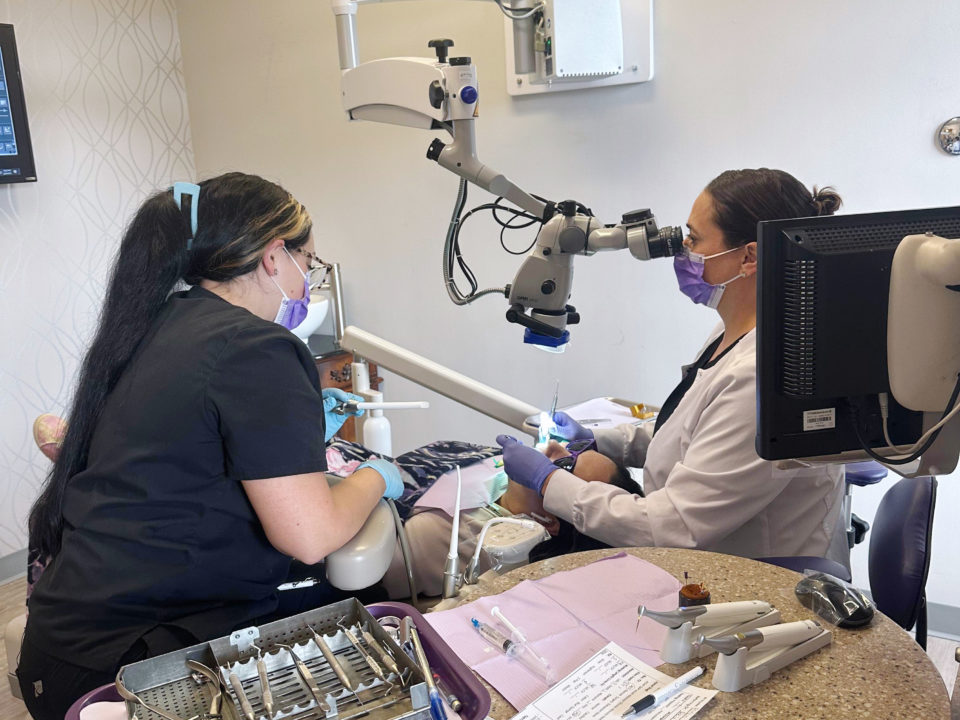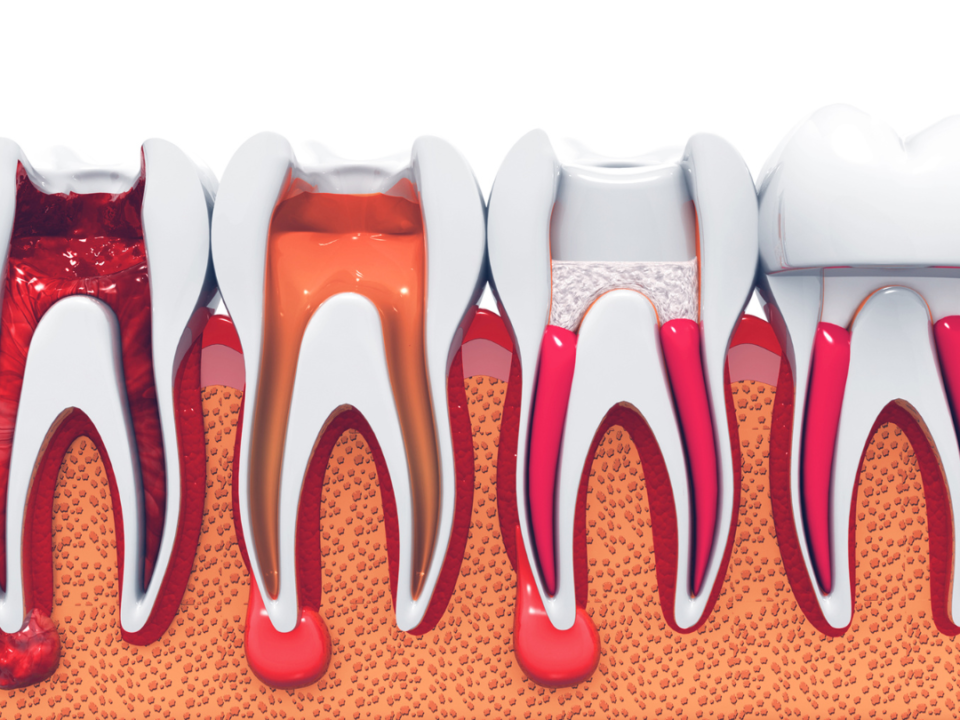
How Long For a Root Canal to Heal?
July 16, 2023
Meet Dr. Umbach A Top Endodontic Specialist in Summerville SC
July 19, 2023
How Long For a Root Canal to Heal?
July 16, 2023
Meet Dr. Umbach A Top Endodontic Specialist in Summerville SC
July 19, 2023Getting a root canal offers a solution to dental pain that should bring years of relief. However, in very rare cases, the treated tooth may develop an infection and cause new discomfort. Know the signs of an infected tooth to get an appointment with an endodontist for treatment.
Can a Root Canal Get Infected?
Among the top treatments offered by endodontists, root canals rank at the top. In fact, endodontists perform 15 million root canals annually, according to the American Board of Endodontists. With so many procedures done each year, naturally, the success rate is not 100%, but it is close. Overall, this treatment has a 93% success rate.
Occasionally, post-treatment infections can happen for one of several reasons. Suppose you develop a new infection in a treated tooth immediately after a root canal or even years later. In that case, you need special endodontic retreatment to fix the problem and save the tooth.
Causes and Risk Factors for Root Canal Reinfections
Root canal reinfections happen when bacteria get into a treated tooth. This may occur during the procedure, shortly after, or at a later date. Several risk factors increase your chances of developing an infection in a root canal-treated tooth, which include the following:
- Intricate root canal anatomy, which makes removing all infected matter during the root canal difficult
- Accessory canals in your tooth that harbor bacteria initial root canal
- Waiting too long to get a crown on a treated molar
- Cavities in the treated tooth
- Cracks in the treated tooth
- A lost or damaged crown on a treated tooth
You may not know whether you have complex anatomy in your tooth’s root canals, but you can take extra care to reduce the risks you know about. For example, good dental hygiene and following your endodontist’s suggestions for getting a crown on the tooth can reduce those risks and help you lower your chances of an infection.
Signs of an Infection in a Root Canal-Treated Tooth
Because you may not know whether you have risk factors for root canal infections, you need to know the signs of this problem. Symptoms of an infection in the tooth can happen at any time, such as after the tooth starts to heal from the infection or years later. Pay careful attention to discomfort in all your teeth, but especially to dental pain in root canal-treated teeth. The following signs mean that you need to call an endodontist for an appointment:
- New discomfort in a treated tooth
- Visible pus of any color
- Swollen gums or tissues around the tooth
- Warmth or tenderness around the tooth, especially when pressed
- A bad taste in your mouth even after brushing due to infectious material in your mouth
Some pressure and sensitivity following root canal therapy are normal and expected. These symptoms should be mild to moderate and gradually improve in the days after your treatment. However, if you notice discomfort that returns, increases in severity, or accompanies other signs of an infection, you need to contact your endodontist.
How an Endodontist Treats an Infected Root Canal-Treated Tooth
When you make an appointment with an endodontist about tooth discomfort in a root canal-treated tooth, they will first examine you to determine the source of the discomfort. In some cases, you may experience discomfort from another tooth instead of the treated one. Some people even have sinus pain that feels like they have problems with their upper teeth. The only way to know is with a thorough evaluation by a professional.
If the doctor sees that you do have a root canal infection, they will schedule you for endodontic retreatment. This treatment process requires the doctor to remove all the material used in the tooth to seal it after the initial root canal, reclean the tooth, and reseal it. It is an intricate process that requires exceptional precision to ensure they have removed the infection from the tooth.
To aid in endodontic retreatment, our doctors at Innovative Endodontics use imaging tools, such as the J. Morita cone-beam three-dimensional CT scanner. With this tool, our doctors can create a 3D image of your tooth to identify if you have complex canals that did not receive treatment the first time.
In some cases, you may require surgery if you have an infection that the endodontist cannot reach from the top of the tooth. During an apicoectomy, the endodontist enters the gum to reach the root tip of the tooth to remove infected matter. Not everyone will need surgery for root canal infections, but if the endodontist suggests it, the only reason they do so is to save your tooth.
Whether you need endodontic retreatment or surgery, our doctors at Innovative Endodontics will do everything they can to stop the infection in your tooth and prevent tooth loss.
Things You Can Do to Prevent Root Canal Infections
While you cannot guarantee that you’ll never get a root canal infection, you can control some of the risk factors.
First, get a crown within two weeks of the root canal and take extra care to avoid cavities in the treated tooth.
Also, use a sports mouthguard during high-impact sports to reduce the chances of tooth cracking.
Third, in the days following a root canal, continue oral hygiene such as brushing and flossing.
Fourth, of course, you must maintain a regular schedule of dental cleanings and exams.
Finally, use caution when eating foods that can cause cracking.
Trust Innovative Endodontics for a Painless Endodontic Treatment
Whether you need a root canal or retreatment for an infection in one, you can trust our doctors with Innovative Endodontics. We’ve been changing the reputation of root canals for years and continue to do so with other endodontic treatments. Contact us for an endodontic evaluation. Let us give you the treatment you need to stop a root canal infection in its tracks and save the tooth.




